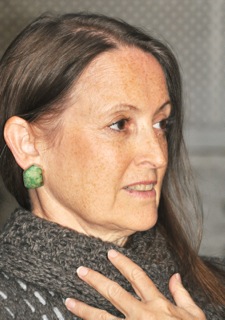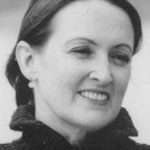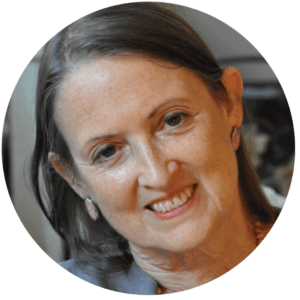 My life’s focus is staying happy and healthy, and helping people like you do the same.
My life’s focus is staying happy and healthy, and helping people like you do the same.
I love guiding people to discover how to feel better and be happier and more empowered, no matter what’s happening, or not happening, in your life.
Your empowering spiritual shift
Feeling better and being happier is a simple spiritual shift that makes it easier to make whatever other changes are needed. When you feel better, you function better, and you make better choices, ones that help you continue to feel better and function better.
I’ve been a student of yoga and meditation for more than 50 years. When I learned to practice Reiki in 1986, I was already a meditation teacher and professional healer, educating and guiding my clients to regain and protect every aspect of their well-being — spiritual, mental, emotional, social, and physical.
You’ll be amazed how much difference a few small tweaks can make — what doctors refer to as lifestyle medicine. I offer not only Reiki practice, but also, very concrete, practical, and doable steps to help you recapture your love of life. When you feel better, and feel better about yourself and your life, you’ll engage in self care as a natural expression of your love of self, others, and life itself.
Reiki and conventional medicine
Pioneering the use of Reiki practice in conventional medicine to relieve the suffering of patients, families, and staff in the 1990s, I’m the original Medical Reiki master and the foremost Medical Reiki expert.
I’ve collaborated with prestigious healthcare institutions on care, education and research, including the National Institutes of Health (NIH); Harvard, Yale, Einstein and other medical schools; and academic medical centers including New York Presbyterian/Columbia University Medical Center, Beth Israel Medical Center, and Memorial Sloan Kettering Cancer Center.
Professional milestones
Specifically I have:
- Been published in peer-reviewed medical journals, including the prestigious Journal of the American College of Cardiology
- Developed the first hospital Reiki program in an infectious disease clinic
- Presented and taught Reiki in medical schools across the country, including Harvard and Yale
- Collaborated on medical research, including an NIH-funded study and a heart rate variability (HRV) study at Yale
- Served as the lead reviewer for the NIH/NCCAM Reiki Backgrounder
- Presented at medical conferences, including the NIH/NCI/OCCAM research conference, October 2007 and the Integrative Healthcare Symposium
- Trained the global Reiki community in skills and perspective needed for conventional healthcare collaboration
- Consulted with hospital administrators integrating Reiki practice into clinical care
- Wrote the award-winning book REIKI: A Comprehensive Guide (Tarcher/Penguin) and numerous popular articles.
In the media
As a leading spokesperson for Reiki in the media, my work has been featured on The Dr. Oz Show, CBS, NBC, The Atlantic, New York Magazine, US News and World Report, The Daily Beast, Refinery29, and Allure magazine.
With master bansuri flutist Steve Gorn, I recorded Meditate to make the practice of meditation — a mainstay of my life for 50+ years — accessible to everyone, even those people who are convinced that whatever happens when they sit is anything but meditation.
My private practice is based in New York City, but technology makes it easy for us to work together no matter where you are.
Here are the ways I can support you:
- individual healing sessions,
- Reiki training,
- professional development for Reiki practitioners,
- research, and
- development of institutional Reiki programs.
Long Version
When I was eleven, I asked my mom for a book about yoga. How I knew about yoga, why it seemed like a book that would be fun to read — I have no idea. Even to me, it seemed a bit strange, yet I was fascinated. As I opened the book, the direction of my life shifted, imperceptibly and irrevocably.
I experimented with the postures in the yoga book, and began tapping into meditation. I became aware of my mind in an entirely new way that was exciting and gratifying, and propelled my lifelong involvement with self care. As a teenager, I gravitated toward natural self approaches to maintain health and restore balance, learning about botanicals and the healing power of food.
In college, I lost my taste for meat (something my dad, who called me “the prime rib kid,” never comprehended). I became vegetarian, took yoga classes, and learned self-hypnosis and other natural healing practices.
People who wanted what I had approached me for help, so I started working with clients, teaching meditation and mind-body healing, sharing self-care tips, and guiding clients to access their innate spirituality to enhance their ability to self-heal.
A few years after college, I immersed myself in spiritual practice while living in a monastery in India.
Years later, pregnant with my daughter and in the throes of first-trimester blahs, a friend offered me a Reiki treatment. Although she had just taken a First degree Reiki class, the treatment was effective and totally delightful. Minutes after she placed her hands lightly on the crown of my head, I felt cascades of pulsations and dropped effortlessly into a profoundly refreshing meditative state.
As I marveled how easily it had all happened, she mentioned I could learn Reiki self practice.
That got my attention, and I took a First degree Reiki class the following week. I began practicing daily Reiki self treatment, and incorporated Reiki practice into my client sessions.
My enthusiasm for Reiki practice was unbounded. Having the ability to help myself feel better on every level — body, mind, and spirit — quite literally in the palms of my hands was so very…encouraging. It helped me feel I could meet whatever challenges life brought my way.
That was 1986.
I cherish the master healers I know, and make use of their services regularly, but I’ve never been content to turn over my well-being to someone else. Self-empowerment and self-care have always appealed to me; empowering my clients was my goal from the beginning.
Years of meditation practice helped me understand that meditation is the cornerstone of self-healing, and I encouraged my clients to meditate regularly. Actually, I nagged them about it. They’d do well when we meditated together, but…
Well, let’s just say I found other people didn’t take to meditation as readily as I had; it was too much like dieting, with a lot of time and effort invested before seeing a difference and without knowing whether it would work for you.
But Reiki practice gives fast relief, perfect for busy people like you and me. First degree practice is easily learned by anyone with the interest. I saw that becoming a Reiki master would empower me to empower my clients to practice Reiki self-treatment (which often invokes a meditative state). So that’s what I did.
It was 1990.
 Within a few years, I was asked to start a Reiki program at Gay Men’s Health Crisis (GMHC) to teach people with HIV/AIDS to practice First degree Reiki. That was before the pharmaceuticals used today had been developed, when conventional medicine had limited ability to help. I didn’t realize then that my community service would lead to me becoming the original Medical Reiki master.
Within a few years, I was asked to start a Reiki program at Gay Men’s Health Crisis (GMHC) to teach people with HIV/AIDS to practice First degree Reiki. That was before the pharmaceuticals used today had been developed, when conventional medicine had limited ability to help. I didn’t realize then that my community service would lead to me becoming the original Medical Reiki master.
My classes at GMHC eventually led to my collaboration as a Medical Reiki expert in the first integrative HIV program in an inner-city hospital clinic. As a Medical Reiki master, I offered training and supervised Reiki treatment to out-patients. To my knowledge, ours was the first in-hospital (Medical) Reiki program. We documented the benefits of Medical Reiki practice to the patients, including reduced anxiety and pain. That work became the foundation of all I’ve accomplished toward integrating Reiki into conventional health care.
As I came in touch with the wider Reiki community, I realized how much I’d benefited from learning to practice Reiki after practicing meditation and yoga for 25 years. Those years of practice developed my perspective and gave me a different context in which to experience Reiki, one more nuanced than the usual Western approach, more like the context in which an Asian would receive and understand the practice.
Although it was not presented to me as such, I recognized Reiki as a spiritual practice. Subsequent information about the founder Usui Mikao has since become available, and supports that understanding.
Reiki practice made profound sense to me from the very beginning. The simplicity of the practice made it easier for me to teach and communicate Reiki in language that can be understood by everyone — students, the public, and health care professionals.
And that’s a good thing, because my intention is to have Reiki readily available to ease the suffering of the world. In the words of Hawayo. Takata, who brought Reiki to the US from Japan, “I want Reiki to be as available as aspirin.”
To that end, I wrote the award-winning REIKI: A Comprehensive Guide, the most credible, documented Reiki book available and the only one written for the mainstream public and healthcare professionals. My book guides you to qualified Reiki professionals and classes in your area, and draws on my decades of collaboration in conventional medicine to detail how Reiki practice is being used in health care today. Learn more on the book page.
